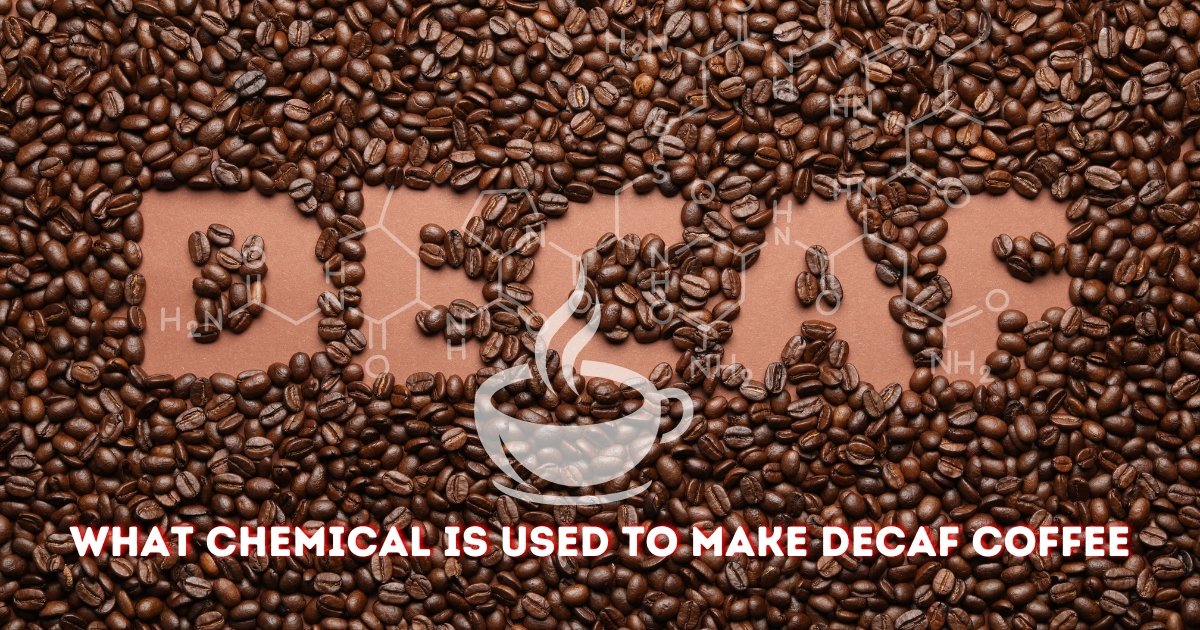
Introduction to Decaf Coffee
Decaf coffee, short for decaffeinated coffee, is a well-known decision for people who need to partake in the flavor of coffee without the invigorating impacts of caffeine. In any case, have you at any point considered what chemical is used to make decaf coffee? We should dive into the science behind decaffeination and investigate the different techniques and chemicals included.
Decaf coffee is basically coffee that has gone through an interaction to eliminate the greater part of its caffeine content. This interaction permits coffee aficionados to partake in their number one drink without encountering a bad case of nerves or rest unsettling influences frequently connected with caffeine utilization.
The Chemistry Behind used to make decaf coffee
Understanding Caffeine
Caffeine is a characteristic compound found in coffee beans, tea leaves, and cacao cases. An energizer influences the focal sensory system, giving an impermanent lift in energy and sharpness. In any case, a few people are delicate to caffeine or really like to restrict their admission because of multiple factors.
Different Methods of Decaffeination
There are a few strategies used to decaffeinate coffee, each including various procedures and chemicals. These strategies incorporate dissolvable based processes, water handling, and carbon dioxide extraction.
Chemicals Used in Decaffeination Process
Methylene Chloride
One normal dissolvable used in the decaffeination cycle is methylene chloride. Chemical is used to make decaf coffee this chemical specifically ties to caffeine particles, permitting them to be taken out from the coffee beans. Nonetheless, there are some wellbeing concerns related with methylene chloride, including potential wellbeing gambles and natural effect.
Ethyl Acetate
Ethyl acetic acid derivation is one more dissolvable used in decaffeination, frequently got from normal sources like natural products or sugarcane. Like methylene chloride, it helps remove caffeine from the coffee beans. Ethyl acetic acid derivation is viewed as more secure than methylene chloride, however certain individuals might favor decaf coffee handled utilizing different strategies.
Carbon Dioxide
In the carbon dioxide technique, coffee beans are absorbed exceptionally compressed carbon dioxide, which goes about as a dissolvable to remove caffeine. This technique is liked by some since it doesn’t include the utilization of chemical solvents and is viewed as more harmless to the ecosystem.
Water Process
The water cycle, otherwise called the Swiss Water Cycle, includes drenching coffee beans in steaming hot water to separate caffeine. The caffeine-containing water is then gone through enacted carbon channels to eliminate the caffeine. This technique is sans chemical and jelly the regular kind of the coffee beans.
Safety Concerns and Regulations
While decaffeination strategies expect to eliminate caffeine securely, there are worries about the lingering presence of chemicals in decaf coffee. Administrative organizations put down certain boundaries on the satisfactory levels of these chemicals in food items to guarantee customer wellbeing.
Health Effects of Decaf Coffee
Decaf coffee offers large numbers of a similar medical advantages as ordinary coffee, like cell reinforcements and expected insurance against specific sicknesses. Be that as it may, it may not give similar invigorating impacts because of its decreased caffeine content.
Decaf Coffee: Taste and Quality
The strategy used to decaffeinate coffee can influence its taste and quality. Certain individuals guarantee that decaf coffee handled utilizing specific techniques tastes sub-par compared to standard coffee, while others can’t differentiate.
How to Make Decaf Coffee at Home
For the individuals who like to make decaf coffee at home, there are different strategies accessible, including utilizing decaffeinated coffee beans or utilizing decaffeination procedures, for example, the water interaction.
Conclusion: what chemical is used to make decaf coffee
In conclusion! Decaf coffee offers a sans caffeine elective for coffee sweethearts, with different strategies and chemicals used in the decaffeination cycle. You Have to Understand these strategies and their suggestions can assist shoppers with settling on informed decisions about their coffee inclinations.
Health Benefits of Coffee
FAQs
Q: What is decaffeination?
A: Decaffeination is the most common way of eliminating caffeine from coffee beans to deliver decaf coffee.
Q: Is decaf coffee completely caffeine-free?
A: Some time decaf coffee contains altogether less caffeine than normal coffee, it might in any case contain follow measures of caffeine.
Q: Can decaf coffee have any adverse effects on health?
A: Decaf coffee is by and large viewed as safe for utilization, however people with explicit responsive qualities or sensitivities ought to practice alert.
Q: How do different decaffeination methods affect the taste of coffee?
A: Alternate decaffeination strategies can influence the flavor of coffee, for certain techniques protecting the flavor better compared to other people.
Q: Is decaf coffee less flavorful than regular coffee?
A: Alternate decaffeination strategies can influence the flavor of coffee, for certain techniques protecting the flavor better compared to other people.




